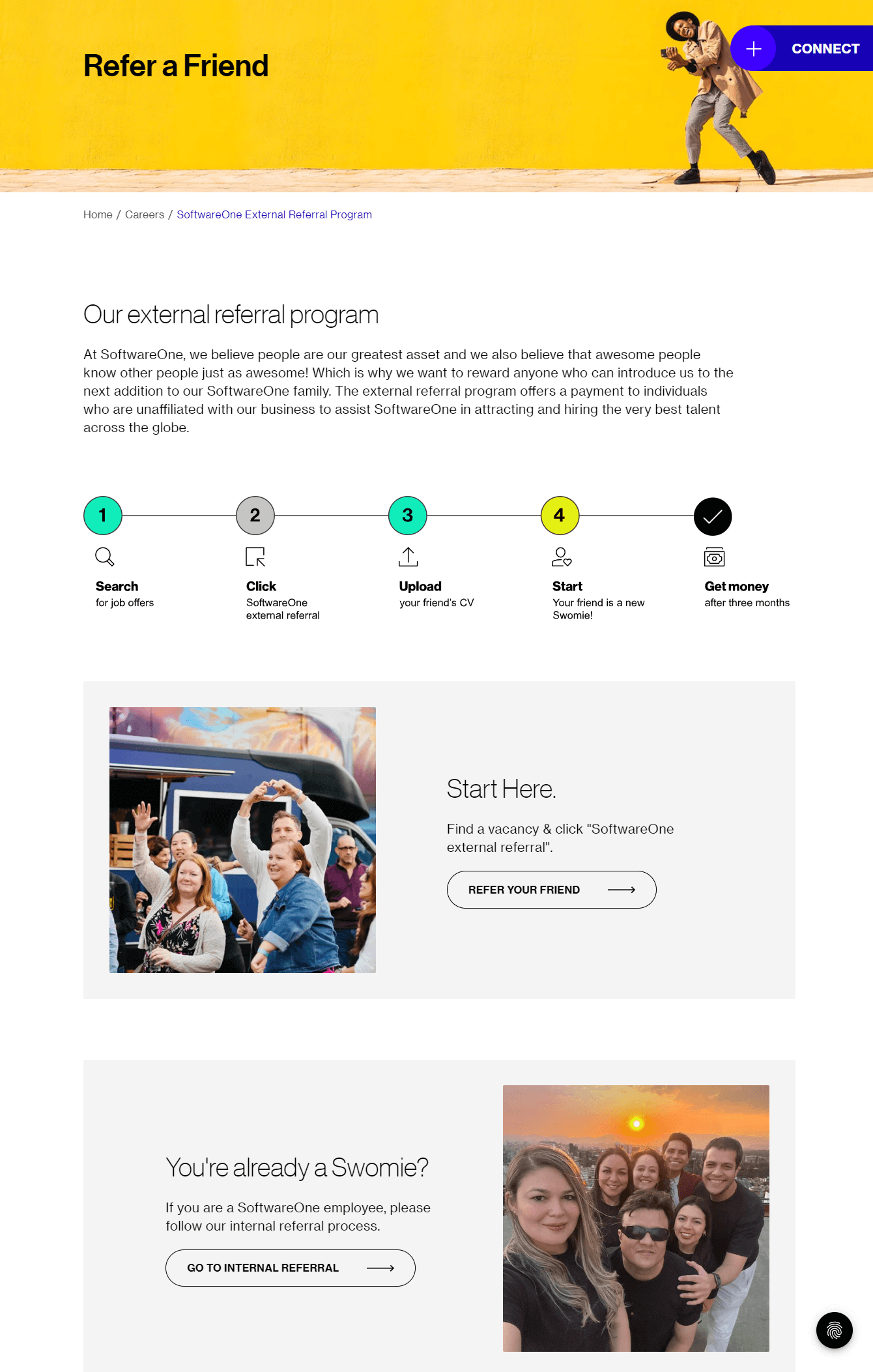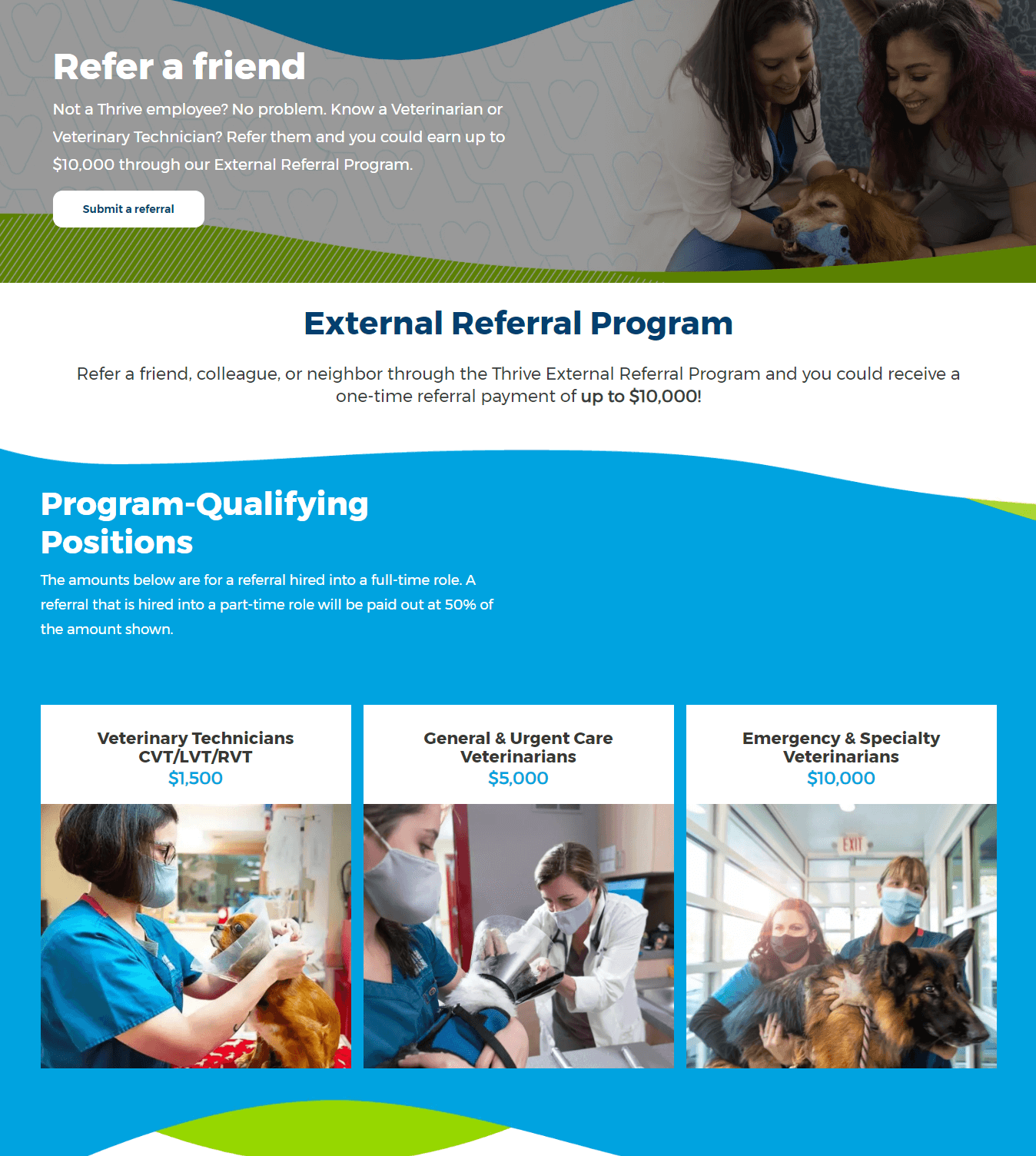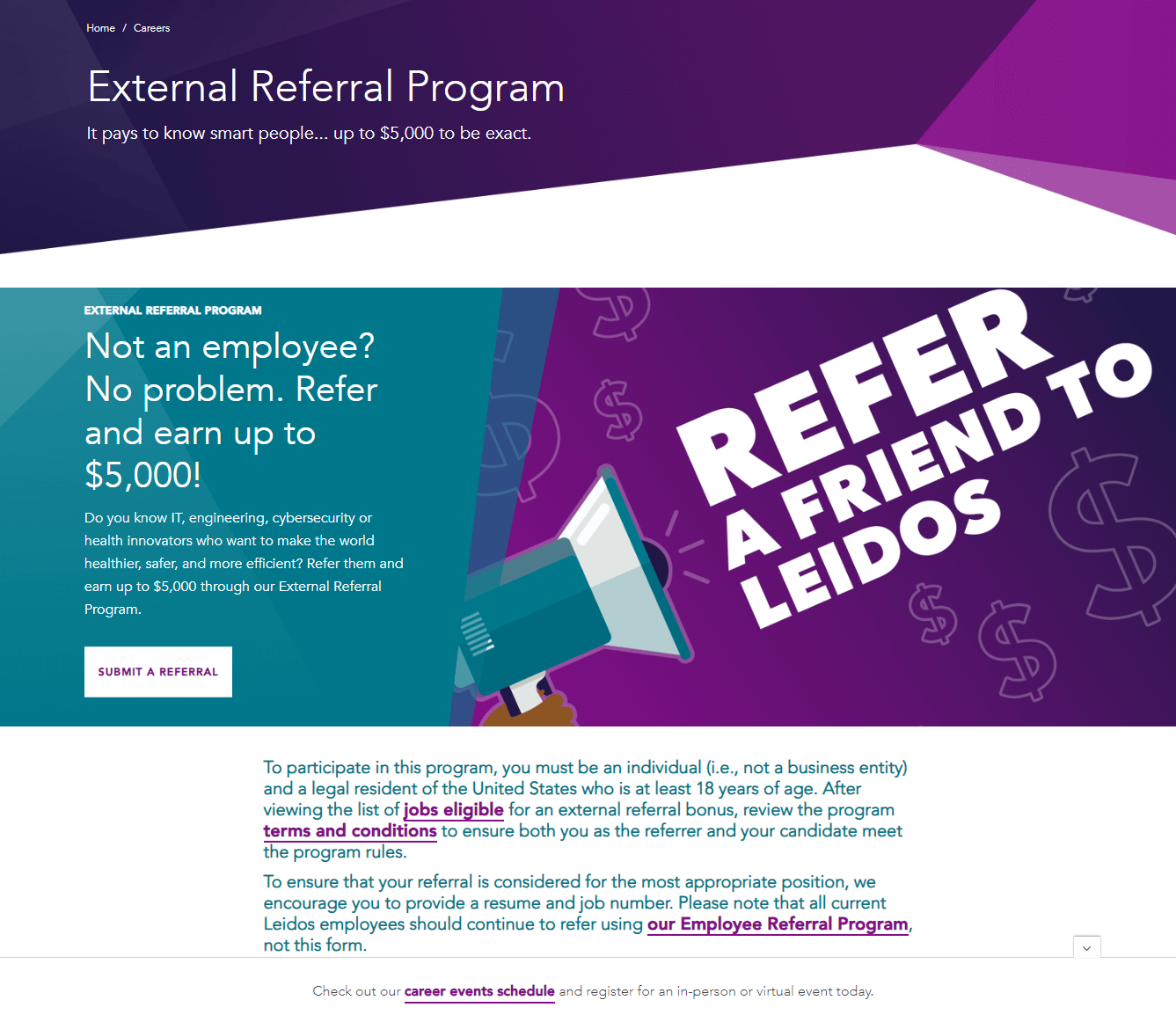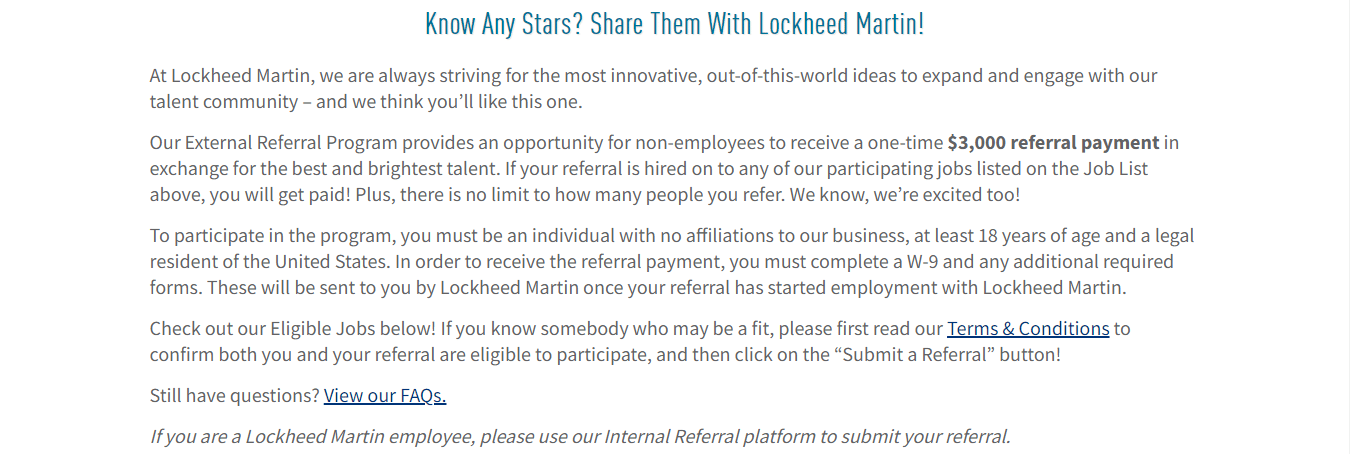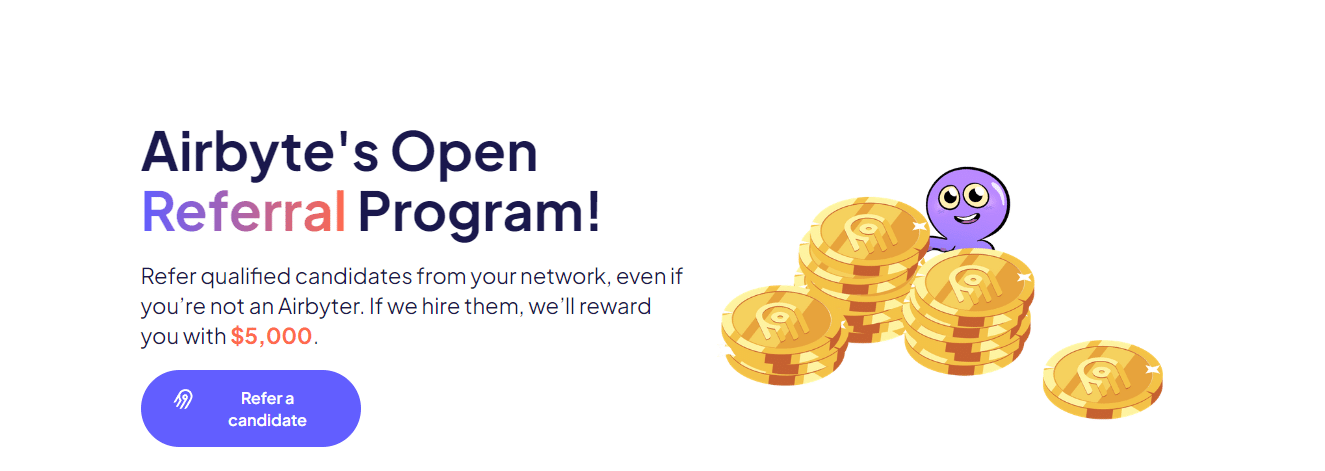Are you on the lookout for extraordinary talent to fuel your company’s growth, but find yourself puzzled about where to kickstart this seemingly mammoth task? The solution might lie in an often-underutilized yet potentially goldmine resource – the vast networks of your existing employees. These networks can be a treasure trove of candidates who could be your next stellar hire, driving your company’s success to new heights.
Finding exceptional candidates can often be a time-consuming, costly process that takes a toll on your company’s resources. But what if there was a secret weapon you could employ? A well-executed external referral program can be the game-changer in your talent acquisition strategy. Research has consistently indicated the significant success of such programs, which have successfully filled a substantial 30%-50% of job vacancies over the years.
This comprehensive external referral program guide will help you identify and connect with people who are not just proficient in their roles, but are also a perfect cultural fit for your company.
What is an external referral program?
An external referral program is an innovative strategy that encourages individuals outside your employee base to refer potential new hires to your company. These individuals are incentivized to refer job candidates who could be a valuable addition to the workforce.
These referral programs are called “external” because they utilize individuals who are not currently on the company’s payroll. They are encouraged to introduce suitable candidates from their personal or professional networks who could potentially be a good fit for the company. This strategy is particularly useful to attract, recruit, and retain top-tier professionals for positions that are notoriously difficult to fill across various levels of the organization.
Participants in this program are provided with a unique referral link for a specific job position. They can share this link among friends, acquaintances, or professional contacts who they believe could be a strong contender for the job role. If a referred candidate makes it through the selection process and is ultimately hired, the individual who made the referral is eligible for a reward. This reward often comes in the form of a cash bonus (called a “finder’s fee” or “referral fee.”)
Note: External referral programs are different from staffing referral programs. In external referral programs, a company will ask for referrals to their own open job positions, but will only accept referrals from an individual person (not a staffing or recruiting agency). In staffing referral programs, a staffing agency asks the community to refer candidates for positions their clients are looking to fill.
Benefits of an external referral program
Referral programs have outshone other methods of employee recruitment, boasting an impressive hiring rate of around 30%, a significant increase compared to the average 7% success rate of other sources.
An external referral program is not just a smart strategy; it’s a cost- and time-effective one too. Research has shown that without an employee reference, it takes companies an average of 60 days to identify a potential candidate to fill a position. However, with a referral, this duration reduces dramatically to just 35 to 40 days.
Furthermore, a referred candidate often proves to be a more appropriate match for the company, aligning well with the company culture and vision. These employees also display a higher retention rate, sticking around much longer than hires from other sources. By leveraging the power of referrals, you have the chance to reach out to potential candidates who may not be actively job hunting but are perfect fits for your company. This significantly expands your talent pool and increases the likelihood of finding the right candidate.
Is an external referral program right for your business?
Despite these benefits, not every company is ready to reap the benefits of an external referral program. For an external referral program to be successful, you’ll need to:
- Have an established company: You’ll need to already have a strong reputation built up, one that makes you a company worth referring.
- Be a reasonably large company: Usually, only larger companies find candidate referral programs worth their while to set up and maintain. Smaller companies, who don’t always have positions they need to fill, almost always find that the investment is not worth it.
- Be in an industry where external referrals make sense: Tech, healthcare, and jobs that require clearances are the most common industries that run these programs. External referral programs work especially well when jobs require certain hard-to-find qualifications.
- Be comfortable with high finder’s fees: You must be willing, and able, to pay a significant “finder’s fee” (in the hundreds or the thousands) when you hire an externally referred employee.
- Know what makes an ideal-fit candidate, and be able to communicate that info well to people outside of your company.
Alternatives to external referral programs
If an external referral program won’t work for you, you can still harness the power of referrals in different ways, such as through:
- An employee referral program, where employees refer candidates
- A customer referral program, where people refer friends who might be interested in buying your products or services
- An advocacy program, where employees promote your business as authentic representatives
- An ambassador program, where people who love your brand spread the word about you online and offline
Before you launch an external referral program
Have you decided that an external referral program is a good choice for your business? Before diving headfirst into implementing an external referral program, there are several important factors to consider to ensure the success and effectiveness of your program. Here are some crucial steps:
Establish clear program goals: Start by identifying the positions or skills you need to fill within your organization. Once you have a clear picture of your requirements, set specific targets for hires through referrals.
Strategize your program launch and timing: It’s essential to synchronize your referral program with your other recruitment efforts, job openings, or seasonal hiring needs. Ensure you have the right resources and support in place to efficiently handle the anticipated influx of referrals.
Identify key program evaluation metrics: Keeping track of the progress of your program is crucial. Develop a set of metrics, such as the number of referrals received, conversion rates, the quality of hires, and retention rates, to gauge the program’s success.
Define your target audience: It’s important to determine who you want to participate in the referral program and who would be most likely to refer suitable candidates. You might want to focus on industry professionals, alumni networks, or other specific groups based on your hiring needs.
Best practices for an external referral program
In the face of today’s hyper-competitive job market, organizations need to leave no stone unturned to find and hire the best talent. A diverse and multi-faceted approach is often the best route to take. Here are some best practices that can exponentially enhance the effectiveness of your employee referral program:
Decide on the right rewards
The reward (also called the external referral bonus) is one of the most important components of your external referral program.
The reward must be substantial enough to motivate referrals and reflect the value of a new hire to your company. You should also offer different rewards based on the open position – the harder a position is to fill, the bigger a reward should be.
Cash is the most common, and most popular, external referral reward. It comes in the form of a one-time referral payment, usually provided on a pre-tax basis. Usually, this payment is valued between $500 and $5,000. In some cases, particularly in the tech industry, external referral payments can reach up to $10,000.
Another valuable reward, like travel credits, a laptop, or a tablet, could also work – but cash is usually preferred.
Share what you want in a candidate
Clearly articulate what you’re looking for in a candidate. Provide potential referrers with a brief but comprehensive description of the skills, experience, and personality traits that the ideal candidate should possess. This helps the referrer assess their contacts and refer only qualified candidates who align with your requirements.
Place a full description on the job posting page and provide a link, or include a short description on the referral page. Regardless of the placement you choose, be sure the descriptions are easy for someone outside the company to digest.
Make sharing easy
Make your program easy to find on your website, and give people multiple sharing options, including email, social media, and a referral link they can copy and paste anywhere. The page should be uncluttered – not too much text, so the program is easy to understand.
Don’t ask for too much info from the referrer on the page. Only ask for what you need to track the referral and send the employment opportunity to the friend. For instance, you probably don’t need to ask for addresses. Usually the referrer’s full name and email, and the friend’s full name, email, and phone number, are enough at this point. After all, the friend can share their own detailed contact information when they apply.
Promote your program
Use a range of formats and channels to promote the program. Depending on the size of your company, your preferences, and your company culture, you can use methods such as social media platforms, events, emails, newsletters, and webinars.
Other formats that work include interviews, testimonials, infographics, and stories. Keep in mind, however, that promotion should be an ongoing effort, instead of a one-time thing.
By using a variety of channels, formats, and strategic timing, you can effectively promote your external referral program, maintain engagement, and maximize its impact.
Make the program terms clear
Your external referral bonus program terms must be easy to understand. You can use them to point out who qualifies to participate and receive incentives.
For example:
- Who is eligible to participate and earn rewards? Common eligibility terms in external referral programs include:
- Can’t be a current employee
- Can’t be immediate family of an employee
- Must be an individual and not a business entity or agency
- Must be of legal age (in the U.S., must be 18 years of age)
- Must be a legal resident of the United States (or must legally reside in the company’s country)
- Who can people refer to earn rewards? Common requirements include:
- Must not have been employed by you previously
- Must not be a current applicant
- Must not be a family member of one of your employees
- Must not have been referred already by someone else (in a given timeframe)
- Must not be a self-referral
- Must not be a current contractor or temporary employee
- Are there only certain eligible positions that people can refer peers to for rewards? Or can people receive rewards for successfully referring any new full-time employee?
- When are the hiring rewards paid out?
- Upon hiring?
- Or after 30/60 days of employment, as long as the referred employee is still at your company?
- Are there smaller rewards available if a referred candidate is invited to interview?
- These are not necessary, but may help motivate more referrals because hiring processes are long.
- Adding another reward “step” can show how much external referrals are appreciated
If your list of terms is long, consider linking out to a full list of terms on another page, to keep the referral page from getting cluttered.
Get your employees involved, too
Employees should be eligible to make candidate referrals as well – this gives you the maximum candidate pool. Decide whether you’ll run one program for everyone to refer candidates (an “open employee referral program”), or run separate employee and external referral programs.
The best practice is to give different rewards to employees and external referrers, within different programs. In this case, employees can’t use the external referral program, but have their own employee program because they also deserve to be rewarded for referrals.
Thank people for referrals
It’s important to show people their referrals are appreciated and keep them in the loop. Always express gratitude for the effort that people put into referring candidates. Keep them updated about the status of their referred candidates and the overall progress of the program. This not only motivates them to continue participating but also strengthens their relationship with your company.
If a candidate applies, let the referrer know, and send email updates to the referrer as the candidate moves through the process. If that candidate applies but doesn’t move forward, thank the referrer for the recommendation and let them know the candidate didn’t move on.
But if a referral does get hired, you should write a personal, handwritten note as a thank you.
Run your program with the right software
Utilizing dedicated employee referral software, like Referral Rock, can streamline and automate the referral process. Employee referral software lets you create referral links, track the hiring referrals people make, and instantly issue rewards when referrals are successful. It also integrates with your existing tools and processes for a smoother experience.
Referral Rock can run an external referral program and an employee referral program (where employees refer the candidates) at the same time – plus run other types of referral programs based on your needs.
The power of external referral programs: A winning strategy
External referral programs are not just another recruitment strategy. They are a powerful tool that can significantly elevate your talent acquisition game. By incentivizing individuals outside your company to refer potential candidates, you can tap into a much wider pool of highly qualified professionals. This not only helps you find the right candidates for your company, but also helps you build a community of advocates who promote your company and its culture.
External referrals are also time-efficient and cost-effective. They can significantly reduce the time and resources you need to spend on sourcing and screening potential candidates. It can be particularly useful in filling positions that are traditionally hard to fill, either due to a lack of qualified applicants or due to the specialized skills required.
The effectiveness of external referral programs lies in the power of networks. Every individual has a unique network of contacts, each of whom could be your next star hire. By leveraging these networks, you can reach potential candidates who may not be actively looking for a job but are perfect for your company. This can give you a competitive edge in talent acquisition.

